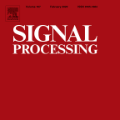We propose and examine the idea of continuously adapting state-of-the-art neural network (NN)-based orthogonal frequency division multiplex (OFDM) receivers to current channel conditions. This online adaptation via retraining is mainly motivated by two reasons: First, receiver design typically focuses on the universal optimal performance for a wide range of possible channel realizations. However, in actual applications and within short time intervals, only a subset of these channel parameters is likely to occur, as macro parameters, e.g., the maximum channel delay, can assumed to be static. Second, in-the-field alterations like temporal interferences or other conditions out of the originally intended specifications can occur on a practical (real-world) transmission. While conventional (filter-based) systems would require reconfiguration or additional signal processing to cope with these unforeseen conditions, NN-based receivers can learn to mitigate previously unseen effects even after their deployment. For this, we showcase on-the-fly adaption to current channel conditions and temporal alterations solely based on recovered labels from an outer forward error correction (FEC) code without any additional piloting overhead. To underline the flexibility of the proposed adaptive training, we showcase substantial gains for scenarios with static channel macro parameters, for out-of-specification usage and for interference compensation.
翻译:我们提出并研究不断使最新神经网络(NN)基于正方位频率多功能接收器(OFDM)适应当前频道条件的构想。这种通过再培训进行的在线改造主要有两个原因:第一,接收器设计通常侧重于各种可能的频道实现的通用最佳性能。然而,在实际应用中和短时间间隔内,这些频道参数中只有一小部分可能发生,因为宏观参数,例如最大频道延迟,可以假定为静态的。第二,实地变化,如时间干扰或其他条件,超出原定规格,可以在实际(现实世界)传输时发生。虽然常规(基于过滤器的)系统需要重组或额外的信号处理,以应对这些不可预见的条件,但基于NNN的接收器即使在部署后也可以学会减轻先前看不见的影响。为此,我们展示了仅仅根据从外向错误校正(FEC)代码中回收的标签进行的直线调整和时间改变,而无需任何额外的试运行。为了强调静态干扰应用的灵活性,我们提出了宏观调整性参数,我们展示了用于宏观补偿的大幅应用。



